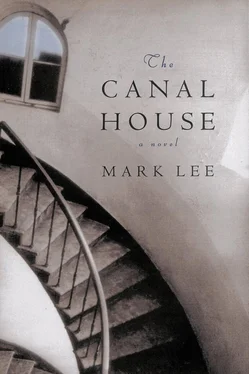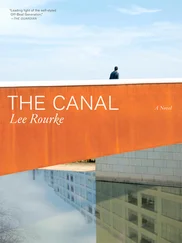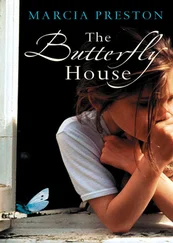“This is my Roman bridge,” Daniel said. “It’s about two thousand years old.”
“You own it?”
“It officially belongs to the Department of Antiquities, but they don’t seem to know it’s here.” We stepped off the road, walked through the grass for a while, and paused near the foot of the bridge. It had been built with bricks and blocks of sandstone. Everything was straight-edged and organized in the Roman manner, except for the broken section and the rubble in the stream.
“It was constructed by the Roman army for the legionnaires. They’d land on the coast after fighting in some foreign country, then go to the springs at Viterbo to get healed. When everyone had rested, they marched down to Rome.”
I sat down on a chunk of white marble. “Sounds like a good system.”
“It’s always worked for me in the past. These days, it takes me longer to recover.”
“Stop flying around. Become a bureau chief.”
Daniel watched the bees circle around a patch of wild mustard. “We’re paid to be witnesses, Nicky. Lots of journalists write about the center of the picture, but some of us need to see what’s going on in the corners.”
“You’re an idealist.”
“Not at all. I don’t believe in politics, religion, faith, hope, or charity.”
“But you believe in a good news story?”
“Yes. Exactly. A good news story—with pictures.”
Daniel turned away from the bridge and headed back to his farmhouse. When I didn’t get up, he stopped at the edge of the road and waited for me. If Daniel had just assumed that I was going to travel to Africa, I would have told him to find somebody else. But that morning he looked tired and a little desperate. For some reason, he had to leave this beautiful place.
“Come on, Nicky. Let’s go.”
I waited for a few seconds. Then I stood up and followed him.
I flew back toLondon the next morning and told Carter to authorize a check for my expenses. I don’t carry a lot of clothes when I’m traveling, but I make up for it in film and photographic equipment. I have nine cameras, but I store them at a shop near Shepherds Bush Green. Over the years I’ve developed a theory that the more equipment you take, the fewer pictures you shoot. After changing my mind a few times, I decided on an Olympus digital and my favorite Nikon with three extra lenses.
Daniel arrived a few days later. We picked up our visas and took the tube to the Daily Telegraph offices at Canary Wharf. We met a sleek young editor named Jeremy who took us downstairs to a bistro for lunch. All the editors in the room were sipping Chablis or Margaux, and Jeremy ordered quiche Lorraine. He mentioned the Telegraph ’s web site eight times, then told me to get “good visuals” in Africa. The drink-a-pint-and-sweat-a-story days of Fleet Street journalism were definitely fading away.
Later that afternoon, we stopped in at the Newsweek offices. Carter brewed some tea while Daniel was talkative and charming. On the way back from the men’s room, I caught Ann Weinstein putting on lipstick and brushing her hair before she entered Carter’s office. It didn’t seem like the beginning of a flirtation. There was something about Daniel’s presence that made everyone want to stand a little straighter and become part of whatever he was planning.
IF YOU’VE NEVER worked with a reporter before, you try to find out about them as you travel to the story. After the third glass of wine, people begin to talk about their marriages or how much they hate their job. I asked Daniel a lot of questions on the flight to Nairobi, but I got very little information. He had two younger sisters. His father had been a supply sergeant in the air force and the McFarland family had moved to a new post every three years. When Daniel was a junior in high school, his mother discovered that she had liver cancer. Sergeant McFarland refused to take care of his wife, and Daniel had to nurse her. Daniel was the only person in the hospital room when his mother died, and then the family fell apart like a defective piece of machinery. His father got transferred to Alaska, the two sisters went off to live with an aunt, and Daniel was on his own.
He’d brought along a half-dozen tapes for his cassette player so I did manage to learn about his musical tastes. All great musicians, he explained to me, had recorded a handful of pure moments in which they connected to something powerful. Usually they were searching for that moment, but sometimes it just came to them accidentally during one performance when a special song or the people they were playing with pushed them to a different level. They were still themselves, with the same desires and frustrations, but during that time the music floated clear of them and became an independent creation.
“Sounds interesting,” I told him. Perhaps I looked skeptical because throughout the flight, Daniel kept taking off his earphones and slipping them over my head.
“Do you hear that?” he asked. “Right now. That?” I had to admit it was some wonderful music—a trumpet solo by Miles Davis followed by a Puccini aria sung by Maria Callas—but I could never hear the moment. It was like someone trying to talk to you about God.
At Kenyatta airport we hired a taxi. Nairobi National Park stretched out on one side of the highway and suddenly we were in Africa. In the distance I could see herds of zebras and gazelles clustered around a water hole. It was dry season. Two girls wearing pink dresses filled a plastic jerrican in the road ditch. A matatu roared past us, crammed full of passengers, their faces pushed against the glass.
We checked into the New Stanley Hotel in the center of the city. It’s the kind of place where the towels are frayed and there’s always a black beetle waving its antennae at you in the shower stall. The next morning I went downstairs to have breakfast at an outdoor café. I watched the city buses and Peugeot hire cars challenge each other as they roared up Kenyatta Avenue. Africans hurried to work, pushing past schoolboys wearing white shirts and blue shorts. Backpackers from some blond country stared at the café bulletin board while two Japanese businessmen sweated over their omelets. The Kikuyu waiters, old and proud, considered it a badge of honor to ignore me as long as possible.
I ordered a pot of tea and a basket of mandazi , the little semisweet doughnuts they serve all over East Africa. Maybe I should eat healthy food, but all rules are suspended when you’re working. As I popped a mandazi into my mouth, Daniel threaded his way through the tables and sat down beside me.
“I’m going to see if I can find the local Newsweek stringer. I’ll meet you at the hotel around four o’clock. We’ll go over to Reuters and talk to Matt Vickery.”
“He’s the bureau chief?”
Daniel nodded. “I knew him in Bosnia, but I haven’t seen him for two years. Matt was doing an article about the fighting in Algeria when his car hit a land mine. He was badly burned and almost didn’t recover.”
“Why is he still working?”
“What else is he going to do? The management at Reuters felt they owed him a favor because he got injured on assignment. When he requested the East Africa Bureau, they gave it to him.”
I spent the morning looking for Maloprim, the backup malaria drug you take with chloroquine, then returned to the hotel and slept. Daniel knocked on my door around four and we strolled over to the Reuters office on Moi Avenue. Car exhaust and charcoal fires diffused the light and added a brownish haze to the sky. Nairobi feels like a small town; you can walk through the central area in about fifteen minutes. The architecture is a mix of glass skyscrapers, clunky Victorian mansions, and functional concrete block buildings. With each visit, the city seemed to become shabbier and more crowded. I saw a few more prostitutes in bright red dresses, a few more street boys selling Makonde wood carvings, a few more young mothers whispering, “ Mzungu, mzungu ,” as they shifted their babies to their hips and extended their hands.
Читать дальше












